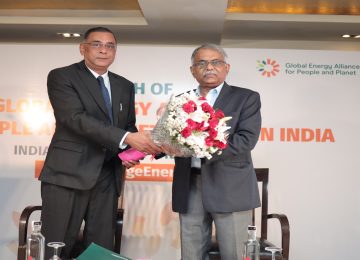Imagine millions more women confidently stepping into India’s vibrant workforce, particularly in the booming Indian IT sector.
This isn’t a distant dream but a tangible possibility, now accelerated by a paradigm shift within the very heart of Indian IT. For too long, the industry, a global powerhouse, has been synonymous with relentless work hours and a scant regard for work-life balance. The narrative of “doyens of late work hours” was almost a badge of honor, a testament to dedication. However, a seismic shift is underway. This marks a welcome shift, especially since the IT sector often overlooked employee welfare—a crucial component of the “S” (Social) factor in ESG—particularly concerning working hours.
Leading companies like Infosys, TCS, Wipro, HCLTech, and Tech Mahindra are now implementing new policies that encourage HR to track employee hours and actively discourage overtime. This unexpected pivot, driven by a growing awareness of employee burnout, marks a long-overdue transformation in a sector traditionally known for its demanding pace, and it holds immense promise for increasing women’s participation.
The impact on women:
India’s female labor force participation rate has historically been among the lowest globally, with a staggering 60% of working-age women remaining outside the labor force, as highlighted by the Periodic Labour Force Survey in 2024.
The “inhuman hours” of the tech sector have often forced women to choose between career progression and family responsibilities. With this newfound focus on work-life balance, the landscape is poised for significant change. A March 2025 study by Ideas for India suggests that formalizing part-time employment and redistributing unpaid care work could raise female labor force participation by six percentage points (from 37% to 43%). The IT industry’s moves towards healthier work environments could be a significant catalyst in achieving this.
More women in leadership roles?
Significantly, the initiative could propel more women to leadership roles. This also implies that the Diversity, Equity, and Inclusion (DEI) criteria will likely be met.
The fear of work-life imbalance is a stated reason for many women holding back from pursuing leadership positions. A March 2025 Naukri report, “The Unfiltered Truth: What Women Professionals Really Want,” found that while 66% of women feel encouraged to pursue leadership roles, 44% hesitate due to concerns about work-life balance.
By alleviating the pressure of extreme hours, IT companies could create a more conducive environment for women to ascend to leadership positions, fostering greater diversity at the top. This, in turn, can lead to more inclusive decision-making and a virtuous cycle of positive change.
Business imperatives at play?
The reasons behind this sudden change of heart are multifaceted. While promoting employee well-being is certainly a factor, strategic business imperatives are undeniably at play.
The relentless “always-on” culture has a hidden cost: burnout. Recent surveys highlight a systemic burnout crisis in the Indian tech industry. A March 2025 Blind survey of 1,450 IT professionals revealed that 72% reported working over 48 hours weekly, with 25% routinely exceeding 70 hours, and 83% experiencing some form of burnout.
This isn’t just a personal failing; it’s a strategic risk. Exhausted employees lead to decreased productivity, higher error rates, and stifled innovation. As a NASSCOM community report from June 2025 points out, a Stanford study found that productivity drops sharply after 50 hours per week, becoming essentially unproductive beyond 55.
High attrition rates are another critical outcome. A survey by Talent Exodus predicted that up to 2.2 million IT professionals may leave their jobs by the end of 2025, with 57% unwilling to consider returning to IT services. This growing disillusionment is forcing companies to re-evaluate practices as the cost of hiring and training replacements becomes unsustainable.
The public discourse ignited by Infosys co-founder Narayana Murthy’s controversial statement advocating for a 70-hour workweek, while well-intentioned, inadvertently shone a spotlight on the unsustainable work culture. This made it imperative for companies to demonstrate a commitment to employee well-being. Infosys’s current internal campaign, urging employees to stick to regular working hours, directly contrasts with Murthy’s earlier stance, highlighting a pragmatic shift within the company itself.
Cultural shift:
While the intent is commendable, implementing these new policies comes with its own set of challenges. Cultural shifts are inherently difficult; deep-seated beliefs equating long hours with dedication are hard to dismantle. Employees, accustomed to working extra to prove commitment, may find it difficult to “switch off.” Furthermore, global clients often expect round-the-clock availability, placing pressure on Indian IT firms.
Effectively tracking hours and ensuring genuine work-life balance without resorting to micromanagement will be a delicate act for HR departments. Also, the nature of IT projects often involves intense periods leading up to deadlines, meaning companies will need to re-evaluate project planning to prevent last-minute crunch periods.
The impact of this shift could be profound, extending beyond the IT sector itself. If these leading companies successfully implement healthier work-life policies, it could create a domino effect, encouraging other Indian industries—from finance and manufacturing to consulting and startups—to re-evaluate their demanding work environments. The rising awareness of burnout and its economic consequences is a universal concern.
Our take:
Recent analyses underscore the urgency. A “Study on Work-Life Balance of Information Technology Employees Working from Home During Covid-19” by SDMIMD in 2021 noted that “people who have better balance have greater job satisfaction and perform better in their position.” This reiterates the business case for these changes.
Indeed, this move was long overdue. The unsustainable model of endless work hours has taken a toll on employee well-being, mental health, and ultimately, productivity. Indian IT is finally catching up. It’s not just about being humane; it’s about being smart, competitive, and building a resilient workforce for the future. The initial challenges are real, but the long-term benefits—a healthier, more productive, and more diverse workforce—promise to outweigh them significantly.













